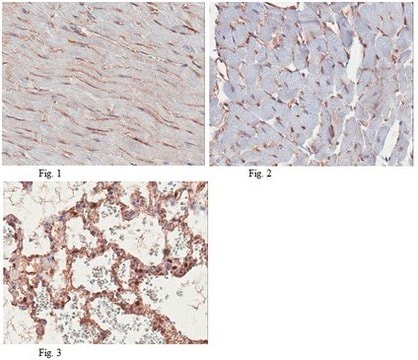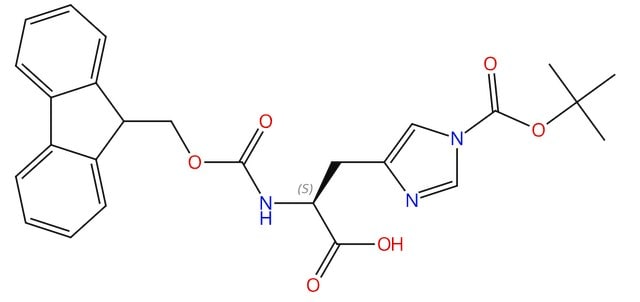ABE1953
Anti-PTRF/Cavin-1 Antibody
from rabbit, purified by affinity chromatography
Synonyme(s) :
Polymerase I and transcript release factor, PTRF/Cavin-1, Cavin-1
About This Item
IHC
WB
immunohistochemistry: suitable (paraffin)
western blot: suitable
Produits recommandés
Source biologique
rabbit
Niveau de qualité
Forme d'anticorps
affinity isolated antibody
Type de produit anticorps
primary antibodies
Clone
polyclonal
Produit purifié par
affinity chromatography
Espèces réactives
rat, human
Technique(s)
immunocytochemistry: suitable
immunohistochemistry: suitable (paraffin)
western blot: suitable
Numéro d'accès NCBI
Numéro d'accès UniProt
Conditions d'expédition
wet ice
Modification post-traductionnelle de la cible
unmodified
Informations sur le gène
human ... CAVIN1(284119)
Description générale
Spécificité
Immunogène
Application
Western Blotting Analysis: A representative lot detected exogenously expressed human PTRF/Cavin-1 in transfected 22Rv1 and LNCaP cells (Moon, H., et al. (2014). Oncogene 33(27):3561-3570).
Immunohistochemistry Analysis: A representative lot detected reduced PTRF/Cavin-1 immunoreactivity in paraffin-embedded malignant prostate stroma tissue samples when compared with normal prostate stroma and benign prostatic hyperplasia (BPH) specimens. A lack of PTRF/cavin-1 immunoreactivity in prostate epithelia was seen among both normal and malignant samples (Moon, H., et al. (2014). Oncogene 33(27):3561-3570).
Immunocytochemistry Analysis: A representative lot detected surface caveola localization of exogenously expressed human PTRF/Cavin-1 among transfected LNCaP cells (Moon, H., et al. (2014). Oncogene 33(27):3561-3570).
Qualité
Western Blotting Analysis: A 1:1,000 dilution of this antibody detected PTRF/Cavin-1 in 10 µg of rat skeletal muscle myoblast L6 cell lysate.
Description de la cible
Autres remarques
Vous ne trouvez pas le bon produit ?
Essayez notre Outil de sélection de produits.
Code de la classe de stockage
12 - Non Combustible Liquids
Classe de danger pour l'eau (WGK)
WGK 1
Point d'éclair (°F)
Not applicable
Point d'éclair (°C)
Not applicable
Certificats d'analyse (COA)
Recherchez un Certificats d'analyse (COA) en saisissant le numéro de lot du produit. Les numéros de lot figurent sur l'étiquette du produit après les mots "Lot" ou "Batch".
Déjà en possession de ce produit ?
Retrouvez la documentation relative aux produits que vous avez récemment achetés dans la Bibliothèque de documents.
Notre équipe de scientifiques dispose d'une expérience dans tous les secteurs de la recherche, notamment en sciences de la vie, science des matériaux, synthèse chimique, chromatographie, analyse et dans de nombreux autres domaines..
Contacter notre Service technique








